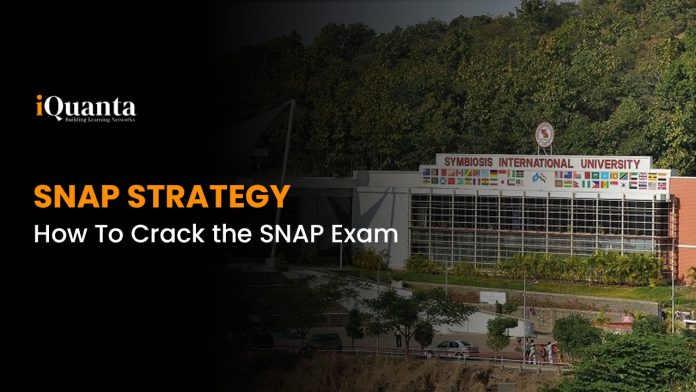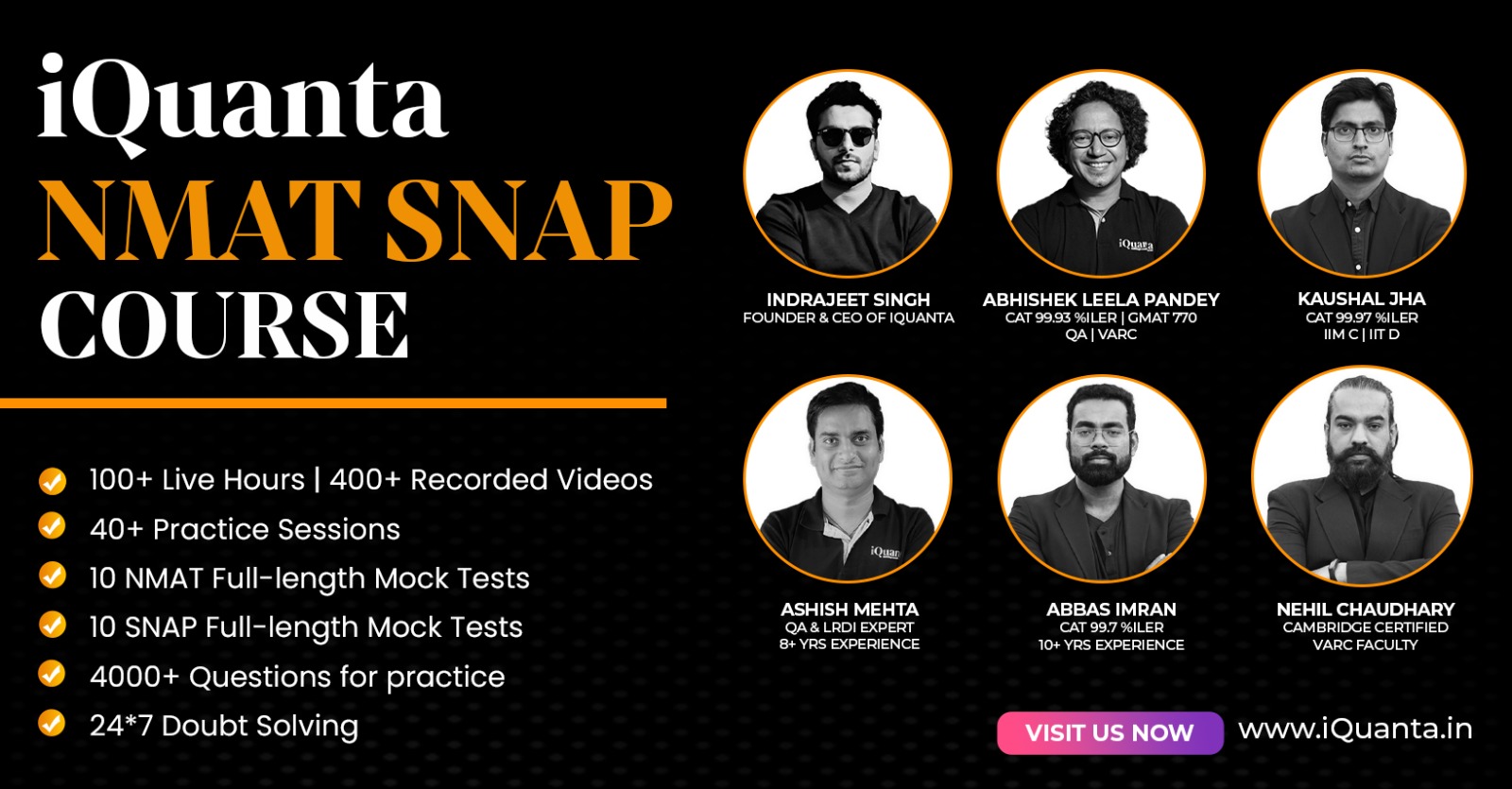SNAP Preparation Strategy
The SNAP exam will be held three times in the month of December. As per the updated SNAP exam format, your SNAP strategy for the SNAP exam should begin well in advance. The goal of SNAP preparation should be to get into SIBM Pune, SCMHRD Pune, or one of the top 16 Symbiosis MBA programs that accept SNAP scores.
The principles of the SNAP question paper have stayed same, therefore preparation is not difficult. Your SNAP preparation time table is an important part of to build your SNAP strategy.
The SNAP preparation is not a difficult task because the preparation pattern may be maintained. The four key portions of the SNAP exam require equal attention in the SNAP exam preparation.

SNAP Exam Pattern
In 2020, the SNAP exam pattern was changed. The SNAP exam strategy requires a thorough idea about the SNAP exam pattern. The total amount of time, the total number of questions, and the total number of marks were all reduced. The SNAP question paper will follow the same format. Check out the sectional breakdown of the SNAP exam in the table below:
SNAP Marking Scheme
- One mark will be awarded for every right answer.
- For every wrong answer 0.25 marks per question will be deducted.
- No negative marking for unanswered questions.
SNAP Exam Syllabus
Being well acquainted with the SNAP syllabus is important for a full proof SNAP strategy. Given below is the SNAP syllabus along with the iQuanta SNAP Class hours.
1. Quantitative, Data Interpretation & Data Sufficiency
2. Analytical & Logical Reasoning
3. General English
iQuanta’s NMAT+ SNAP Prep Course is about to start.
SNAP Topic Wise Weightage | SNAP Exam Analysis 2024
1. General English
2. Analytical and Logical Reasoning
3. Quantitative, Data Interpretation & Data Sufficiency
Section-Wise SNAP Preparation Strategy
It is very important for an aspirant while building their SNAP strategy to have a stronghold on all three sections of the syllabus: General English, Analytical & Logical Reasoning, and Quantitative Data Interpretation & Data Sufficiency, and for that, the aspirant needs to give their equal focus on each section as they can be more confident while giving the exam.
1. SNAP Preparation Strategy: General English

Your SNAP strategy for General English part focuses entirely on practice. It is critical to take as many practice tests as possible. Choose the best study materials to help you brush up on your English fundamentals. To focus on your reading, read newspapers/articles/magazines on a daily basis. Improve your reading and vocabulary skills. This will assist you in improving your knowledge.
Once a week, try to complete simulated tests in the time provided. This will assist you in balancing your speed. Solve 5-10 PYQs from the SNAP test to gain a better understanding of the question format. If you’re doing self-study, look up English lectures online.
2. SNAP Preparation Strategy: Analytical and Logical Reasoning
![]()
With the help of an organized online course, you can learn the fundamentals. Once you’ve mastered the fundamentals, you can move on to using tricks to answer questions. Solve as many papers as possible. At least once a week, take a practice exam. This would allow you to assess your performance.
Select an effective online exam series to help you improve your efficiency in answering questions. It’s critical to strike a balance between speed and precision while building a SNAP strategy for Analytical & Logical Reasoning. As a result, keep track of your time as you answer the questions. Focus first on accuracy and speed will come with time.
NEVER assume or use any information that the question fails to give you.
Pay special attention to words like “all,” “some,” or “none” when you read the factual information. Other qualifying words such as “other than,” “only” or “unless” are important too. These words can play a critical part in precisely specifying the facts to be used in your reasoning. Pay attention to negative prefixes also, such as non-, un-, or dis-. These can be crucial to specifying the basic facts in the paragraph.
The questions will range in difficulty, and throughout the SNAP exam Paper, challenging questions will be interspersed in with simpler ones. On your rough sheet, which is provided to help and corroborate your thought processes, try to sketch diagrams or make other schematic notes whenever you come across an issue that you find challenging. Remember, the best SNAP strategy for ARLR is that you can temporarily put off working on a challenging topic and come back to it later, but only if the section hasn’t changed.
3. SNAP Preparation Strategy: Quantitative, Data Interpretation & Data Sufficiency

Memorizing theorems and equations isn’t enough. Additionally, you must increase your ability to apply them to the relevant question. When you’ve finished a topic, go over the sample questions and activities at the end of the chapter to evaluate how you did. Examine which questions you were able to answer properly on your first attempt and which ones were tough.
The most important SNAP strategy for Quants is to move from basic/easier concepts to more challenging ones in quants. This way, a logical flow will be maintained as the easier concepts are often employed to solve challenging ones. Therefore, it is not advised that you prepare profit and loss before learning the basics of the number system. This point must be clearly noted in your quants for SNAP exam.
Make a list of the most important theorems, equations, and shortcuts you discover along the journey. This can result in an efficient SNAP preparation strategy for Quants and will come in handy throughout the week preceding up to the exam for revision. Because all competitive assessments are timed, the goal is to increase your response time and accuracy. Keep in mind that practice is the key to success.
To start your SNAP preparation for Quantitative Skills, make sure you start from the very basics. Begin with focusing on calculation. Practice speed maths and vedic maths. You can refer to the following videos for some fast calculation tips:
Start preparing from the elementary level Mathematics and then work your way up to the tougher questions. Here at iQuanta, both Live and Conceptual classes are conducted so that the students can learn the concept behind a topic and then apply them to the questions. Try to not rely on the calculator for basic calculations.
If you want a structured course to prepare for NMAT & SNAP exam, visit the link below.



